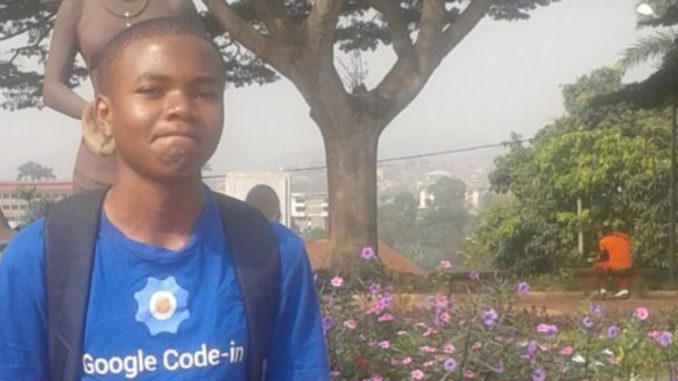
Nji Collins Gbah of Cameroon has become the first African to win the prestigious Google Code-In competition.
Google Code-in is an annual programming competition hosted by Google Inc. It is open to all pre-university students aged between 13 to 17 with parental consent. The contest was originally called the “Google Highly Open Participation Contest,” but in 2010, the competition was modified to its current format.
Gbah is one of the more than 1,300 young people from 62 countries who took part in the 2016 Google contest, where participants complete 20 tasks split into five different categories.
In the end, Gbah was one of 34 winners around the world to win the grand prize and an invitation to visit Google’s Mountain View, California, headquarters. The four-day trip will include an awards ceremony, an opportunity to meet with Google engineers, and a day of sightseeing in San Francisco.
Seventeen-year-old Gbah is a bright and ambitious secondary school student who taught himself to write codes by studying online and reading books two years ago.
Gbah is from Bamenda, the English-speaking region of Cameroon that has recently held a number of street protests over the alleged discrimination it has faced from the French language-speaking government.
As a result of the protests, the government shut down the Internet in Bamenda and surrounding areas. Schools have also been shut down and commercial activities have been crippled.
Luckily for Gbah, the Internet shutoff occurred just after he had completed most of the tasks assigned to him.
Gbah said that soon after the Internet was shut down, he had to go live with his cousin in Cameroon’s capital, Yaoundé, so he could remain connected to both the Internet and the beautiful world of computer programming.
“I wanted to get a connection so I could continue studying and keep in touch with Google,” he said.
Gbah plans to study Computer Science at the university, and he is currently working on artificial intelligence, neural networks, and deep learning. “I’m trying to develop my own model for data compression, using deep learning and machine learning,” he said.
credit – face2faceafrica.com
